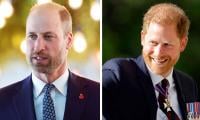With the PTI’s stars looking bleaker and bleaker every passing day, the current ruling coalition looks to be readying itself for some serious electoral business. As has been tradition, most decisions regarding the future of Pakistan’s politics somehow always seem to be taken out of Pakistan. The venue this time for a grand political huddle is Dubai, both Nawaz Sharif and Maryam Nawaz said to be there and Asif Zardari and Bilawal Bhutto also having reached the city. Such political coincidences are rare if not impossible and, while both the PML-N and the PPP have not officially claimed any top-tier leadership meetings regarding possible election details, sourced news says there is indeed a lot of ‘talk’ going on between the two parties – Mian Muhammad Nawaz Sharif and Asif Ali Zardari in particular. And there is much to discuss indeed. First, the caretaker government. For the past many weeks, one after the other names have been doing the rounds, one or two names in particular being seen as favourites for the caretaker PM slot. If nothing else, one would expect the two parties to come up with a consensus candidate for the interim period at the least.
Next: the date of the elections. There was talk some time back whether assemblies would be dissolved just before the end of term to ensure a November election. That could be a possibility and we may perhaps see some clarity on this post the Dubai meetup. The more cumbersome process should be seat adjustments and alliances. That may be a trickier situation for the PML-N and the PPP, which have both displayed remarkable adherence to a code of conciliatory politics these past few years, especially when it came to dealing with the PTI’s politics. We could see some divergence from a ‘united front’ in this respect, though if stories are to be believed the two party leaders are trying to remove ‘deadlocks’ in consultations. Will we see a seat adjustment in Punjab then? Observers have said that may be unlikely, given the history of politics in Punjab and the rise of Jahangir Khan Tareen’s party as well as the PML-Q factor.
The economy – still uncertain, still crippling for the people – should be a main subject and sources have claimed that there may be an effort by both the main parties to agree on stability in economic policy, regardless of who comes to power in the centre next. There must be a robust political accord when it comes to the economy in the country. Only a few days back, a former deputy governor of the State Bank of Pakistan had tweeted in detail just how India in the 90s had managed to lift itself up economically. There was no magic to it: the trick was to ensure honest, pragmatic, tough but well-planned reforms. Pakistan at the moment needs a political leadership that understands the ‘It’s the economy, stupid’ mantra, internalizes it, and moves forward keeping economic policy as away from political compulsions as possible. We have not seen that in the past one year of the PDM government, and with Prime Minister Shehbaz Sharif now in overdrive trying to get Pakistan its IMF SLA, one hopes there’s a realization that foot-dragging will just not work when it comes to our economic future.
The man of the moment seems to be Nawaz Sharif, reports saying that former leaders of parties such as the MQM are also wishing to meet the elder Sharif. This could be the result of the signs that seem to be pointing at Nawaz’s lifetime disqualification getting neutralized via the amendment in the Election Act and any review procedure in the SC that could follow it. With the possible return of Nawaz back in mainstream politics, and back on Pakistani soil physically as well, electoral politics will take front and centre in a throwback to a pre-2017 political chessboard. But there is one significant change: the possible absence of Imran Khan from the political scene. Analysts say that Monday’s ISPR press conference may not have named Imran per se, but the hints were all there as to who is seen as responsible for masterminding the May 9 events. An economy stabilized, and a free and fair election: these two conditions will need to be ensured to get Pakistan out of its current political, social and financial pitfalls. The rest is politics.
Govt's hawkish elements need to recognise that their rigidity could worsen the current political impasse
These sentences mark first phase of legal consequences for those involved
Deadlock finally broken on Thursday , with India, Pakistan and ICC agreeing to hybrid model
No one enjoys giving up portion of their income and so revenue collection measures incur people’s resentment
FO rightly rebukes these sanctions, terming them “biased” and warning of their dangerous implications for regional...
Senator says that Pakistan should focus on centralised climate authorities to local leadership at provincial level







